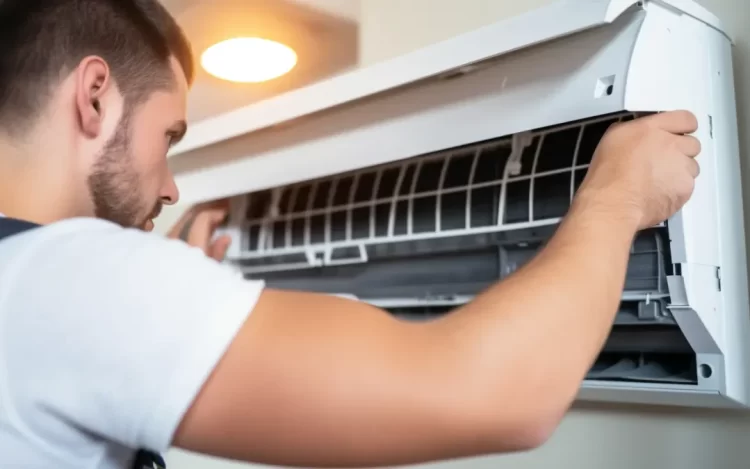As the sweltering heat of summer approaches, the importance of a functioning air conditioning (AC) system becomes paramount. A well-maintained air conditioner not only ensures comfort but also enhances indoor air quality and energy efficiency. However, like any mechanical system, AC units are prone to issues that require prompt attention. This guide delves into the essentials of air conditioning repair, highlighting common problems, troubleshooting tips, and when to seek professional help.
Common Air Conditioning Problems
Understanding the common issues that affect air conditioning systems is the first step towards effective repair and maintenance. Some of the most frequent problems include:
- Refrigerant Leaks: Refrigerant is crucial for cooling air. Leaks not only reduce efficiency but also harm the environment. Identifying and fixing these leaks promptly is vital.
- Dirty Filters: Clogged filters restrict airflow, reducing efficiency and causing the unit to overwork. Regular cleaning or replacement is essential.
- Thermostat Issues: Faulty thermostats can lead to inconsistent temperatures and increased energy bills. Calibration or replacement can resolve these issues.
- Frozen Evaporator Coils: When coils freeze, the AC can’t cool the air effectively. This can result from airflow problems, low refrigerant levels, or thermostat malfunctions.
- Electrical Control Failures: Frequent cycling on and off can wear out compressors and fans. Electrical issues often require professional diagnosis and repair.
Troubleshooting Your Air Conditioner
Before calling a professional, there are several troubleshooting steps you can take to address minor issues:
- Check the Thermostat: Ensure it is set to the correct temperature and mode. Sometimes, a simple reset can solve the problem.
- Inspect Air Filters: Replace or clean dirty filters. This can significantly improve airflow and efficiency.
- Examine the Circuit Breaker: Ensure the AC unit hasn’t tripped the circuit breaker. Resetting it can restore power to the unit.
- Clear Debris: Remove any debris around the outdoor unit to ensure proper airflow.
- Look for Ice: If you notice ice on the evaporator coils, turn off the unit and let it thaw. This might temporarily solve the cooling issue.
When to Call a Professional
While some issues can be resolved with basic troubleshooting, others require the expertise of a professional. Here are signs that it’s time to call an air conditioning repair specialist:
- Persistent Problems: If the unit fails to cool effectively despite troubleshooting, professional diagnosis is necessary.
- Unusual Noises: Strange sounds such as grinding, squealing, or banging indicate serious issues that need expert attention.
- Frequent Cycling: Rapid cycling on and off can damage the compressor and other components, necessitating professional repair.
- Water Leaks: Significant water leakage around the unit can indicate a problem with the condensate drain or refrigerant.
- High Energy Bills: Unexplained spikes in energy costs can result from an inefficient AC unit, which a professional can address.
Importance of Regular Maintenance
Routine maintenance is key to preventing many common air conditioning problems. Regularly scheduled service includes:
- Cleaning and Replacing Filters: This simple task can greatly improve efficiency and longevity.
- Inspecting Refrigerant Levels: Ensuring proper refrigerant levels can prevent leaks and cooling issues.
- Checking Electrical Components: Professionals can identify and repair potential electrical issues before they cause significant damage.
- Calibrating Thermostats: Accurate thermostat settings ensure consistent and efficient cooling.
- Cleaning Coils and Drains: Prevents buildup that can lead to inefficiencies and water damage.
Conclusion
Air conditioning repair is an essential aspect of home maintenance, particularly during the hotter months. By understanding common problems, performing basic troubleshooting, and recognizing when to call a professional, homeowners can ensure their AC units operate efficiently and effectively. Regular maintenance further helps in avoiding costly repairs and extends the life of the system, providing comfort and peace of mind throughout the year. Whether it’s a minor issue or a major malfunction, timely and appropriate action is crucial in maintaining a cool and comfortable indoor environment.










